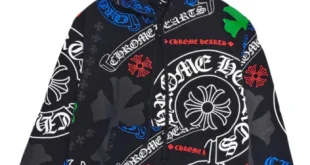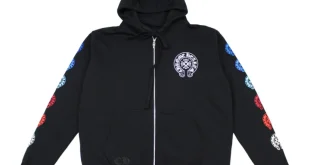In the realm of streetwear, few brands have achieved the cultural Trapstar relevance and iconic status of Trapstar. From its humble beginnings in the streets of London to becoming a globally recognized name, Trapstar’s meteoric rise represents more than just a fashion movement—it’s a testament to the Trapstar Tracksuit power of authenticity, creativity, and community.
Origins: Where It All Began
Founded in 2005 by childhood friends Mikey, Lee, and Will, Trapstar was born out of the trio’s shared love for music, fashion, and street culture. Starting as a small, DIY operation in West London, the brand initially sold exclusive pieces to friends and local tastemakers. The founders maintained an air of mystery, often shying away from the spotlight, letting the clothes speak for themselves.
The name “Trapstar” reflects the brand’s ethos: “Trap” symbolizes the grind and hustle, while “Star” represents the ambition to shine despite adversity. This duality resonates deeply with a generation navigating life’s challenges while aspiring for greatness.
The Aesthetic: Bold, Rebellious, and Unapologetic
Trapstar’s designs are instantly recognizable. Bold graphics, utilitarian cuts, and a gritty, urban edge characterize the brand’s aesthetic. Influenced by music, film, and street culture, their collections often feature cryptic messaging and dystopian motifs, creating an allure of exclusivity. Signature pieces like the “Irongate” logo tracksuits and oversized puffer jackets have become staples for streetwear enthusiasts.
What sets Trapstar apart is its ability to merge functionality with high-impact visuals. The brand seamlessly blends streetwear staples with a high-fashion sensibility, making it equally at home on city streets or at international fashion weeks.
Celebrity Endorsements and Cultural Influence
Trapstar’s global breakout can be credited in part to its celebrity endorsements. The brand quickly garnered attention from A-listers such as Rihanna, Jay-Z, Stormzy, and A$AP Rocky, who have been spotted rocking Trapstar’s iconic pieces. These endorsements were not paid partnerships but organic collaborations, rooted in mutual respect and a shared cultural connection.
The brand’s close ties to the music world, particularly hip-hop and grime, have further cemented its place in pop culture. Collaborations with artists and record labels have brought Trapstar into the mainstream, while its authenticity continues to resonate with underground scenes.
Expansion and Collaborations
Trapstar’s journey from a London-based brand to a global powerhouse has been marked by strategic collaborations. Partnerships with iconic entities such as Puma have introduced the brand to new audiences, while limited-edition drops maintain its exclusive appeal. These collaborations often sell out within minutes, underscoring the brand’s cult-like following.
Despite its growth, Trapstar has remained true to its roots. The brand has kept its operations tightly controlled, ensuring that quality and authenticity are never compromised. Limited runs and exclusive collections reinforce the idea that owning Trapstar is more than just wearing clothes—it’s about belonging to a community.
Trapstar Today
Today, Trapstar stands as a beacon of modern streetwear. It represents the intersection of hustle, creativity, and ambition, with a strong emphasis on cultural impact. Beyond clothing, the brand has ventured into events, pop-up stores, and charitable initiatives, proving that it is more than just a fashion label—it’s a lifestyle.
The Future of Trapstar
As Trapstar continues to expand, its influence shows no signs of slowing down. The brand’s ability to stay relevant in an ever-evolving industry is a testament to its founders’ vision and commitment. Whether through new designs, collaborations, or cultural moments, Trapstar remains a trailblazer, shaping the future of streetwear.
In a world where trends come and go, Trapstar’s unwavering authenticity ensures it will remain a cornerstone of global street culture for years to come.
 Daily Blogger News Stay updated with the latest trends and insights. Your reliable source for daily updates and information.
Daily Blogger News Stay updated with the latest trends and insights. Your reliable source for daily updates and information.







